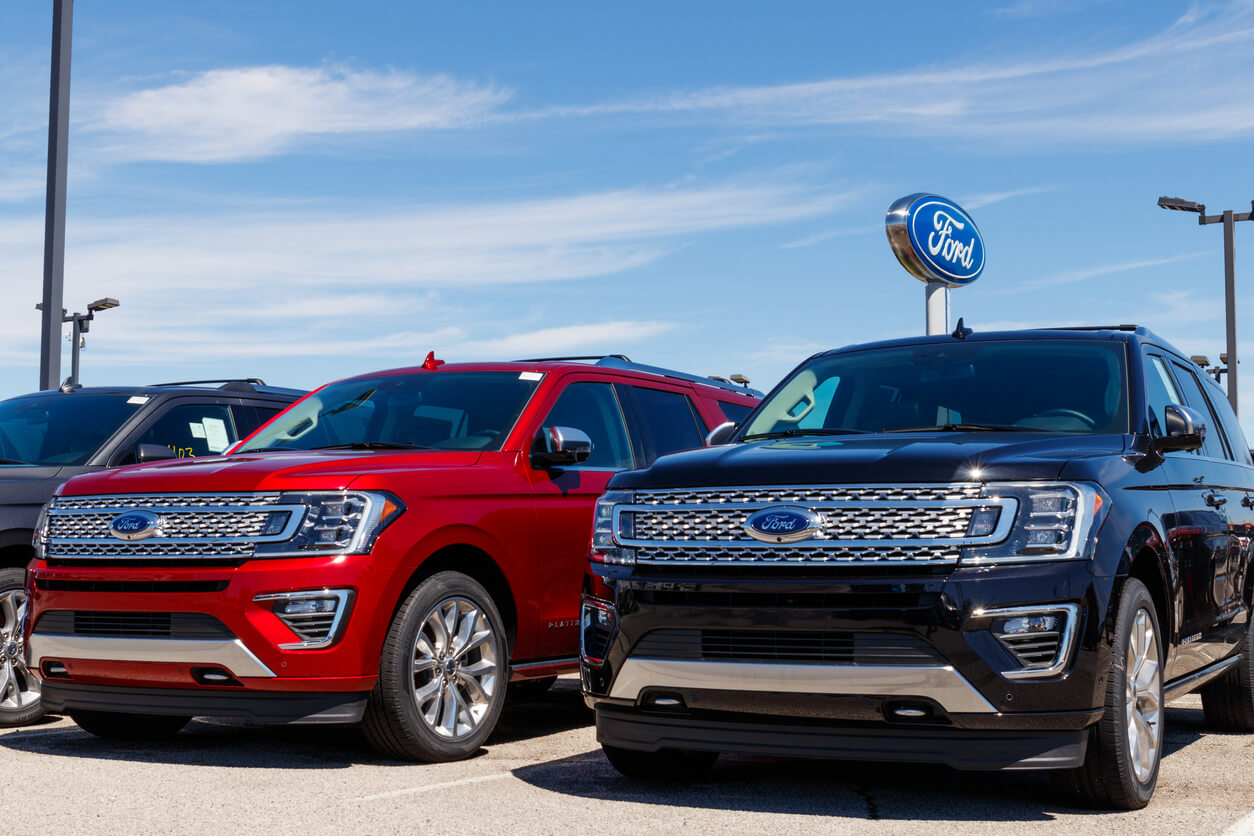Ford has issued two recalls involving more than 737,000 vehicles in the United States due to oil leak and trailer brake issues.
The oil leak recall includes the 2020-22 Ford Escape SUV and the 2021-22 Bronco Sport SUV with 1.5-litre engines. A housing can crack, and oil can leak onto engine parts, which can cause a fire hazard.
“An oil leak in the presence of an ignition source such as hot engine or exhaust components can increase the risk of a fire,” the company says.
The software error can stop trailers from braking, increasing the risk of a crash.
Software And Fire Risk Issues
Ford confirmed it had reports on at least 8 fires incidents and 67 other reports that may be related to the issues but no reports of injuries or crashes.
The company is also recalling 391,836 2021-2022 F-150, 2022 Ford Maverick, Expedition, Lincoln avigator, F-250, F-350, F-450, and F-550 vehicles because a towed trailer equipped with an electric or electric over hydraulic brake system might not brake.
Ford Investigation And Fix
Ford confirms cracks at the edge of the oil separator housing were causing a loss of seal support, leading to oil leaks between the oil separator and engine camshaft cover.
“If sufficient engine oil leaks, accumulates, and migrates to an ignition source, an underhood fire can occur, increasing the risk of injury,” the recall notice says.
Owners are warned that they may smell or see oil smoke coming out from the underhood area.
The company will start sending notifications by mail to take your vehicle to the dealership to have the oil separator inspected for damage or oil leaks, and, if either is present, to replace the oil separator and seals. It will be free of charge.
Notification to dealers has begun. Mailing of owner notification letters is expected to begin Apr. 18.
Trailer Brakes Not Working Issue
Ford is also recalling 391,836 2021-2022 F-150, 2022 Ford Maverick, Expedition, Lincoln avigator, F-250, F-350, F-450, and F-550 vehicles due to trailer brakes not working issue.
“Loss of trailer brake functionality could result in extended stopping distance, increasing the risk of a crash,” according to the recall notice on the NHTSA website.
This issue is caused by a software error, ford said. The error means a towed trailer equipped with an electric or electric over hydraulic brake system may not brake.
Owners will be notified by mail to take their vehicles to a Ford or Lincoln dealer to have the integrated trailer brake control module software updated free of cost.
Ford is currently not facing any legal action for the recalls, but people are monitoring it. Last year, Ford was hit with a class action lawsuit alleging a Ford Fusion transmission problem that could cause sudden shaking, violent jerking, and difficulty stopping.
In December, Ford announced a recall for nearly 115,000 of its 2021 and 2022 model Bronco Sport and Ford Escape SUVs over faulty rear brake linings.
Have Questions? Talk With Us Now
If you are an automobile owner and have manufacturing issues, you can contact us regarding your involvement in this or any potential class-action lawsuit. Serious vehicle problems require serious legal representation, especially when you are bringing a claim against a major automaker.
At the Lemon Firm, our experienced Attorneys have been able to successfully recover compensation for our clients who were sold a vehicle with manufacturer defects, and we can do the same for you. Call (833) Lemon-Firm to speak with a Lemon law expert today.

